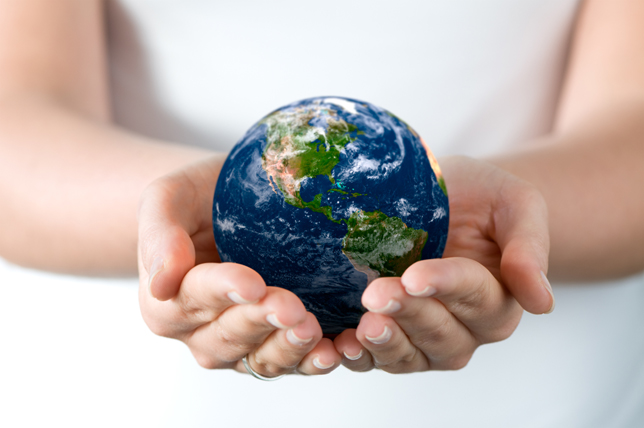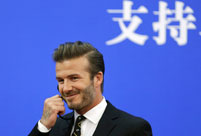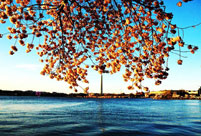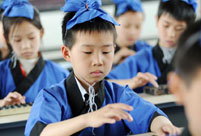 10 low-carbon tips to save money
10 low-carbon tips to save money
 Luxury cars make Asia premiere at Auto China
Luxury cars make Asia premiere at Auto China
 Versatile dog
Versatile dog
 Ni Ni covers BAZAAR JEWELRY
Ni Ni covers BAZAAR JEWELRY
 Cherry blossoms reach peak bloom in Washington D.C.
Cherry blossoms reach peak bloom in Washington D.C.
 Top Chinese fashion icons in foreigners' eyes
Top Chinese fashion icons in foreigners' eyes
 Asia's largest business aviation exhibition to be held in Shanghai
Asia's largest business aviation exhibition to be held in Shanghai
 World's top-rated luxury hotels
World's top-rated luxury hotels
 Wu Jing, Xie Nan to hold wedding on May
Wu Jing, Xie Nan to hold wedding on May
 London Cake International attracts tourists
London Cake International attracts tourists
BEIJING, April 23 -- President Barack Obama, priding himself on being "America's first Pacific President," starts his four-nation Asia tour in Japan late Wednesday, aiming to consolidate Washington's long-promised engagement with the dynamic Asia-Pacific region.
It will be the first state visit to Japan, one of America's closest allies in Asia, by a U.S. president since 1996 when Japan hosted then U.S. President Bill Clinton. Obama will also visit South Korea, Malaysia and the Philippines.
The Japanese government led by Prime Minister Shinzo Abe has been hoping that Obama will demonstrate during his two-night stay that "Japan-U.S. alliance...is undoubtedly unshakable and firm." But this hope will be hard to satisfy.
A right-tilting Japan, with Abe at the helm, has been busy with whitewashing its wartime aggression against its neighbors, raising severe concerns in China and South Korea.
Meanwhile, Tokyo has also been engaged in intense territorial disputes with Beijing and Seoul.
Thus, on the contrary to Japan's claim that it wants to be a constructive partner for the United States in upholding peace and stability in the Asia-Pacific, the rapidly right-leaning country has actually become a strategic liability for Washington.
HISTORY PROBLEMS
On the eve of Obama's arrival in Japan, 146 Japanese lawmakers visited en masse on Tuesday the notorious Yasukuni Shrine which honors 14 Class-A war criminals in World War II along with Japan's war dead, adding difficulties to Obama's already challenging seven-day Asian tour.
The visits followed an offering to the Tokyo shrine by Abe on Monday. Although having decided not to pay tribute in person this time, the prime minister dedicated a "masakaki" tree.
It is seen as an obvious attempt to play both ways -- avoiding further embarrassing Obama diplomatically and at the same time appeasing right-leaning forces domestically.
Japan has apologized for its wartime brutality on several occasions, but official acts such as visiting the Yasukuni Shrine and revising history textbooks to whitewash Japan's wartime atrocities have efffectively undercut its sincerity.
Regional countries, especially China and South Korea, are also particularly angered as Japan repeatedly refuses to accept the responsibility for sexual slavery during the war. Most of the sex slaves were women from China and Korea.
Japanese politicians' lack of sincerity in acknowledging its past brutal aggression have severely hurt the feelings of its victims, strained Japan's already fraught ties with Asian nations, and compounded their suspicion of Japan's intentions.
The latest shrine visits and offering have placed Obama, whose administration called Abe's shrine visit in December disappointing, on a tightrope.
Silence over the provocation will not only put a dent to Washington's moral authority around the region, but also land the U.S. president in a delicate position as he will later travel to South Korea, a country that suffered greatly from Japanese aggression in WWII.
Washington is also worried that the provocation will further strain regional ties.
"We encourage Japan to continue to work with its neighbors to resolve concerns over history in an amicable way through dialogue," a State Department spokesperson said Monday, commenting on the shrine visits.
TERRITORIAL DISPUTES
Territorial disputes are another destabilizing factor in the Asia-Pacific as well as a sensitive topic during Obama's Asia trip. Japan is engaged in territorial squabbles with three of its neighbors, namely, China, Russia and South Korea.
The Japanese government has been hoping for a clear statement from Washington concerning its territorial disputes, especially with China.
The United States, working on building a "new type of major-country relationship" with China, Asia's largest and the world's second largest economy, has sought to avoid taking a stand on the sovereignty over the Diaoyu islands.
In an apparent bid to pacify Japan, Obama said Wednesday that the mutual security treaty between the United States and Japan applies to the isles at the center of the China-Japan dispute.
But Washington has been also mindful not to be hijacked by Japanese rightists, who are desperate to drag the United States into any potential conflicts with China.
Few believe Washington can afford to defend a U.S.-Japan alliance at the expense of its ties with China.
Relations between the United States and China has become the most important factor in world politics in the 21st century, according to Stephen Harner, a scholar and former U.S. State Department official.
"Realism, and pursuit of American national interests dictates that the aim of U.S. policy should be to take maximum advantage of China's rise, and adjust other relationships as necessary to this objective," he wrote in an article carried by the Forbes website on April 10.
For the United States, and also for China, the task of upholding peace and stability in the Asia-Pacific is paramount. If Japanese politicians try to antigonize China and at the same time force Obama to take a side in the row, they may well lose their bets.
Meanwhile, Tokyo's territorial dispute with Seoul, another close Asian ally of America, also puts Washington in a predicament.
In a fence-mending attempt, Obama brought Abe and South Korean President Park Geun-hye together for a face-to-face meeting, the first of its kind since both Asian leaders assumed office, on the sidelines of a nuclear security summit in The Hague in March.
It seemed that the effort to boost rapprochement between Tokyo and Seoul have been undone largely by Japan's subsequent actions, including the shrine visits.
Prior to Obama's visit, the White House said on Friday that the president's trip, is an "important opportunity" to underscore continued U.S. focus on Asia, which it called the world's largest emerging region.
If Obama wants to seize upon the opportunity, he may have to tread very carefully in his first stop.
While playing up the usual hype ahout the U.S.-Japan alliance, the U.S. president should also send out a serious message to the Japanese rightists that the world's sole superpower will not be duped into pulling the chestnuts out of the fire for other countries.
For Japanese politicians, they have a long way to go to get rid of increasing suspicions that Japan has become a strategic laibility for its big brother.
 Commando elite specializes in sign language
Commando elite specializes in sign language Man photoshops himself into girlfriend's childhood photos
Man photoshops himself into girlfriend's childhood photos Photo story: Stallholders at Beijing Zoo Wholesale Market
Photo story: Stallholders at Beijing Zoo Wholesale Market Artists on backstage
Artists on backstage Beckham launches fund to support youth soccer in China
Beckham launches fund to support youth soccer in China Cherry blossoms hit peak bloom in Washington D.C.
Cherry blossoms hit peak bloom in Washington D.C. Children in ancient costumes learn Zhusuan
Children in ancient costumes learn Zhusuan Tens of thousands celebrate Water Splashing Festival
Tens of thousands celebrate Water Splashing Festival A bite of China II whets the appetite
A bite of China II whets the appetite Richest Chinese of 2014: half from the mainland
Richest Chinese of 2014: half from the mainland Chengdu - laid-back lifestyle makes happiest city
Chengdu - laid-back lifestyle makes happiest city The backstage of the Fashion Week
The backstage of the Fashion Week College students in Han costumes
College students in Han costumes Postgraduate works as waitress
Postgraduate works as waitress Life in a Lahu village in Yunnan
Life in a Lahu village in YunnanDay|Week|Month